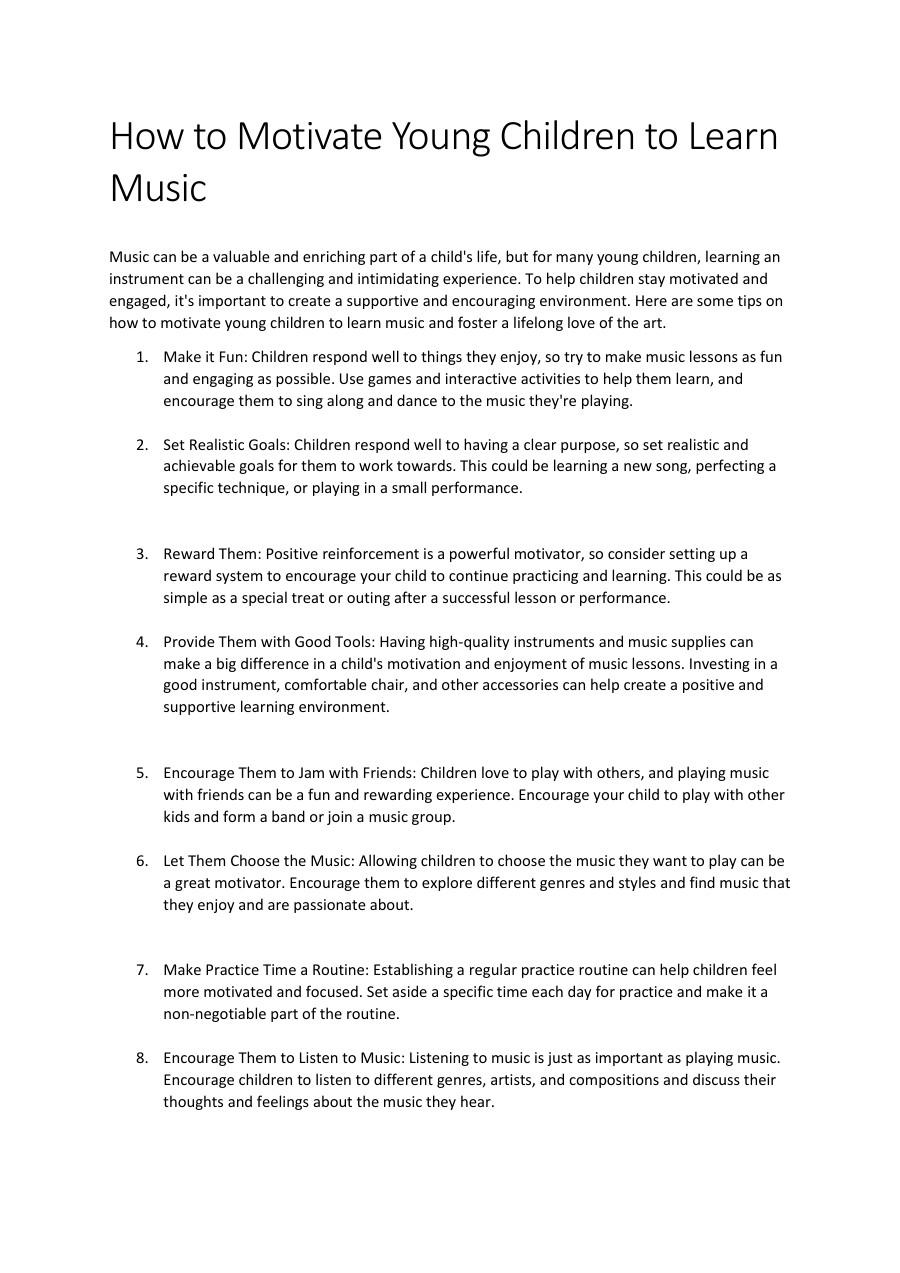 Hire a Tutor
Hire a Tutor 




Music can be a valuable and enriching part of a child's life, but for many young children, learning an instrument can be a challenging and intimidating experience. To help children stay motivated and engaged, it\'s important to create a supportive and encouraging environment. Here are some tips on how to motivate young children to learn music and foster a lifelong love of the art.
More than 25 years of teaching experience
Qualification: National Ukrainian Pedagogical University degree
Teaches: Jazz, Keyboard, Piano
